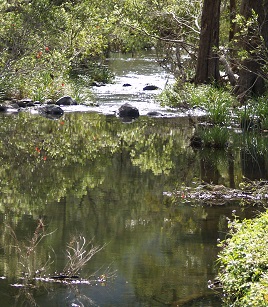Prepare for a career in the growing field of Environmental Studies.

Develop a strong foundational understanding of the environment and what you can do to live in a more environmentally aware way.
Just starting out in the environmental field?
Do you want to enhance your understanding of the natural environment and the wildlife within it?
This course is an excellent introduction to environmental studies providing a broad-based grounding in environmental and conservation issues, and a foundation course for longer learning programs.
Course duration: 100 hours of self-paced study.
Course Structure and Content
The course comprises 6 lessons:
Lesson 1: Living Things
- Classification of plants and animals.
- Identifying living organisms.
- Using identification keys.
Lesson 2: Basic Ecology
- Populations.
- Communities.
- Ecosystems.
- Constituents of ecosystem.
- The ecosphere.
- The web of life.
- Habitats and niches.
- Humans in the environment.
Lesson 3: Global Environmental Systems
- The Earth’s structure.
- The atmosphere.
- Climatic systems.
- Gaia theory.
- The carbon dioxide cycle.
- El Nino.
Lesson 4: Environmental Problems
- Deforestation.
- Loss of agricultural land.
- Loss of biological diversity.
- Loss of water.
- Loss of non renewable resources.
- Environmental weeds.
- The Greenhouse Effect.
- Ozone depletion.
- Ozone as a Greenhouse gas.
Lesson 5: Conservation
- The definition and goals of conservation.
- The history of conservation.
- Natural resources (renewable and non renewable).
Lesson 6: Acting Locally: Thinking Globally
- Humans and water.
- How to minimize water usage.
- Energy use in the home.
- Reducing household waste.
- Domestic transport and its affect on pollution.
- Building materials and their environmental impact.
AIMS
- Demonstrate an understanding of the binomial system of classifying living things.
- Explain the use of keys to identify living things.
- Discuss basics of ecology (the relationships between living organisms and their environment).
- Develop a foundation in Earth Science and an understanding of global environmental systems.
- Demonstrate an understanding of the Earth’s major environmental problems and how they have come about.
- Explain conservation and its importance to individuals and the world.
- Apply a range of methods to reduce the environmental impact of ones actions at home and globally.
What You Will Do In This Course
Here are some of the things you may do in this course:
- Classify a range of living organisms.
- Identify the genus and species names of plants in a nursery.
- Compose a food web for your local area.
- Carry out basic research into the weather in your area and what affects it.
- Carry out in depth research into at least one major environmental problem.
- Contact three conservation organisations to determine the issues they deal with.
- Survey a building to determine the types of building materials used.
- Design an environmentally friendly house.
What Can Humans Do To Reduce Water Use?
- Reduce demand for water per person. We waste a lot of water, and even though some is recycled, some becomes polluted and cannot be used.
- Recycle waste water (bath and shower) for use in the garden.
- Select plants suited to the local environment for use in the garden so that garden watering is minimised.
- Mulch plants.
- Collect rainwater (e.g., troughs and tanks).
- Reduce pollution - through better industrial processes and waste water treatment, and through tighter anti-pollution laws.
- Desalination - this can create its own problems due to the energy consumption required to run the desalination plants.
- Build more dams - this has major effects on the environment.
- Water diversion works - this also has major environmental consequences.
- Cloud seeding to cause more rain in needy areas.
- Reducing evaporation from water storages and channels through the use of covers, or anti-evaporative substances.
- Encourage people to live where water supplies are better.
Why Study with ACS?
Design your own learning pathway.
Study at your own pace, from anywhere, at any time.
Receive prompt, expert support from our team of committed and friendly tutors.
Your learning is our priority. We are flexible and adaptable to meet your educational needs!
Enrolling is easy - just go to the top of this page and select your study method and payment option.
If you have any questions about studying with ACS, or want to know more about any of our courses, get in touch with our specialist tutors today. They will be happy to answer your questions and look at different study options to fit in with your goals.